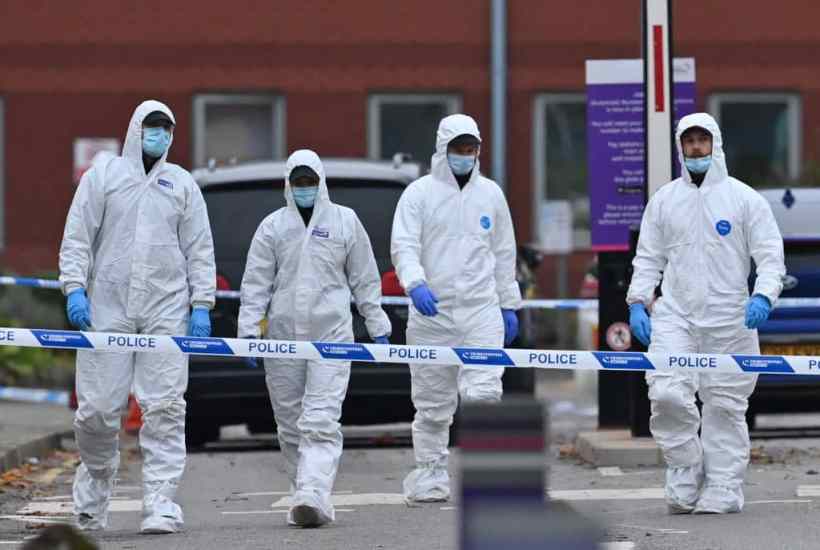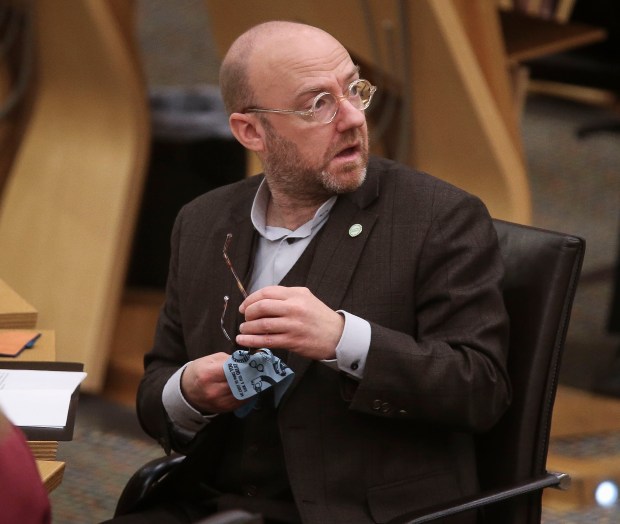Back when the West was still pretending to fight the ‘war on terror’, Martin Amis made an observation about the enemy’s tactics:
‘Suicide-mass murder is more than terrorism: it is horrorism. It is a maximum malevolence. The suicide-mass murderer asks his prospective victims to contemplate their fellow human being with a completely new order of execration.’
The horror was not long in going out of horrorism. Not that the acts themselves became any less horrific: self-detonation to take out a pop concert, nail-bomb seppuku against subway passengers. Rather, we stopped being horrified.
Of course, the initial spectacle continues to startle us, and we utter oaths while shaking our heads, but it is a hollow response. There is not the same awed foreboding that washed over when the second plane knifed the South Tower. There is much less revulsion than there was when London commuters were blown to bits on the Piccadilly line. Theatrical acts of barbarism, staged by our fellow citizens, have lost their satanic dazzle. We have become inured to horror.
By rights, the attempted bombing of Liverpool Women’s Hospital should wrench us out of our self-medicated numbness. Whatever the motivation, the horror of what might have happened had it not been for a quick-thinking taxi driver is enormous. Women and babies were one locked car door from immolation in hospital wards lined with oxygen tanks.
The video of the premature detonation, and the thought of the carnage that would have been wrought had the perpetrator made it just a few more feet, will be appalling to anyone who watches it. But the test of whether we are truly appalled by this 21st century primitivism will come not today but next week or next month.
Will we still be talking about the monstrous wickedness that stalked hundreds of lives yesterday? I would like to think so but I am not convinced.
It is exactly one month since a Member of Parliament was stabbed to death inside a church. Even for a live case, in which the Contempt of Court Act is now active, it is remarkable how quickly Sir David Amess’s death fell out of the headlines. How many, asked to list the key events of the past 30 days, would think to include it? How many even remember his name?
In the wake of acts such as these, a reflexive call goes out to beware a rush to judgement. It is typically issued by people who are against even a leisurely stroll to judgement. There is a whole vocabulary of anaesthetising pabulum deployed by politicians, police, journalists and others to soothe any potential anger or outrage among the public. There are a lot of soft-focus words like ‘communities’ and ‘unity’ and ‘values’, as though mass slaughter and attempts at it were ‘adverse experiences’ to be analysed in therapy-speak and on therapy terms. Seemingly incapable of regulating that element of the populace that seeks to blow the rest of us heavenwards, we have settled for regulating how we think and feel about that. This isn’t old-fashioned surrender, which can have a certain nobility to it; this is whiny, self-help surrender.
There shouldn’t be a rush to judgement but there should be judgement. Anger is self-consuming but it is also a wholly natural sentiment. A society not roused to gall by the planned annihilation of newborns is not as advanced as it tells itself. It is not only legitimate but morally imperative to feel outraged. These are, after all, outrages. Downplaying them or rationalising away their grotesque sadism does not make us more ethical or enlightened. It makes us cowards and, on some level, it makes us complicit. ‘We won’t let the terrorists win,’ we simper, as though we’re even putting up a fight for them to win or lose.
It’s not as though we have sworn off rage and condemnation entirely. We can summon them for the most trivial matters of offence-seeking and culture-warring. If only jihadists feared cancellation. There is a good deal of fretting among our educated classes about rising domestic extremism. Here is extremism, it is domestic in target and origin, and it rose quite some time ago.
There is also much mithering about hatred and vigils held about society’s failure to tackle it. Here is homicidal hatred against a defined group, which might warrant a vigil or two. An apparent attempt to blow up a hospital that specialises in maternity, gynaecology and abortion services, and if it turns out the aim was securing the heavenly ministrations of 72 virgins, even more of a reason to name this misogyny and the culture that inculcates it. You’re not concerned about violence against women if your concern is limited to perpetrator profiles that don’t make you feel politically queasy.
Trying to blow up expectant mothers and babies in incubators in service of your god, your superiority complex, or your personal inadequacies is not just terrorism, but horrorism. It is evil and evil performed to be as violent towards and violating of human decency as is possible.
We should feel horror over what happened in Liverpool. We should feel horror and repugnance and indignation and we should parlay them into public policy, political rhetoric and public attitudes more reflective of the scale of villainy that confronts us. When we stop feeling horror, we have surrendered in our souls.
Got something to add? Join the discussion and comment below.
Get 10 issues for just $10
Subscribe to The Spectator Australia today for the next 10 magazine issues, plus full online access, for just $10.




















Comments
Don't miss out
Join the conversation with other Spectator Australia readers. Subscribe to leave a comment.
SUBSCRIBEAlready a subscriber? Log in